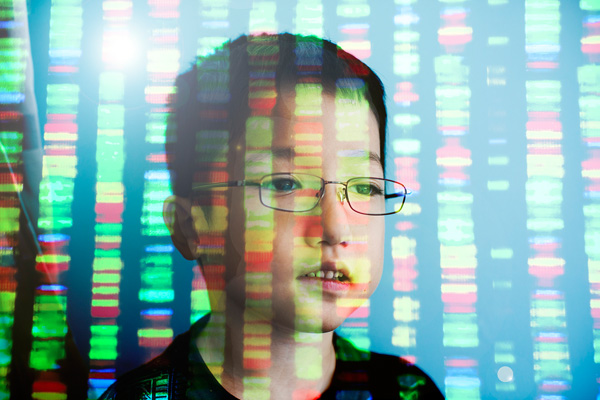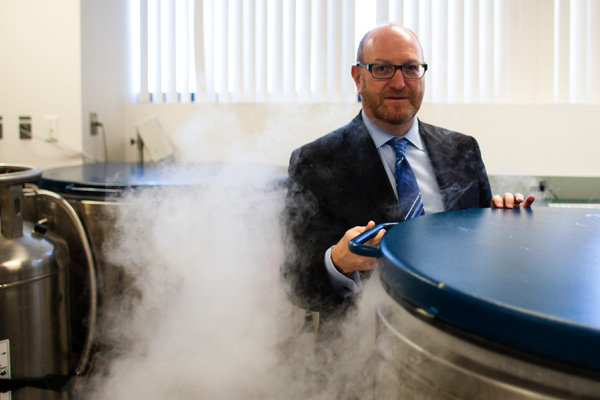Hyundai Gift Keeps Cancer Researchers on Leading Edge of Genomic Science

2015 – Thanks to the generous support of a $10 million gift from Hyundai Motor America and Hyundai Hope On Wheels, CHOC Children’s is edging closer to uncovering cancer’s secrets.
Leonard Sender, MD, founding medical director of the Hyundai Cancer Institute at CHOC Children’s, observes that with the final installment received this past fiscal year, the gift has proved transformational – jumpstarting an ambitious genomic research program.
This pilot project goes beyond looking at the anatomy and history of a disease and instead focuses on the disease’s genomic, molecular, histological and contextual components. CHOC can now sample each patient’s individual tumor and non-tumor (germline) DNA to access critical data containing the key to creating an individualized treatment plan. With this information, CHOC has started building a databank that could eventually include the genomic data of every child diagnosed with cancer in the United States.
"The stars and sky that captured Galileo’s imagination hundreds of years ago are the same stars and sky we see today. What has changed is our understanding of this universe ... The same holds true for the human genome."
“There is so much more to learn about the genome, but the gift from Hyundai has given us an excellent start,” Dr. Sender said. “I compare it to our advances in astronomy. The stars and sky that captured Galileo’s imagination hundreds of years ago are the same stars and sky we see today. What has changed is our understanding of this universe, thanks to the advent of powerful telescopes and sophisticated spacecraft. The same holds true for the human genome: it hasn’t changed, just our understanding of it.”
The catalyst for Hyundai’s Hope On Wheels commitment to cancer research is the startling statistic that only 4% of all federal cancer research funding is designated for pediatrics. Hyundai is deter¬mined to help fill this void. Its grants are designed to both create an infrastructure to study cancer as well as a foundation for hospitals like CHOC to foster meaningful partnerships.
Through the Hyundai gift, CHOC has formed several partnerships and affiliations to further its efforts to unlock cancer’s secrets.
For example, a grant from Cisco Systems supported the creation at CHOC of a Virtual Pediatric Network (VPN), which employs the latest in video conference technology to bring together pediatric cancer experts from several leading institutions to share best practices, research and expertise.
Dr. Sender is drawing from the expertise of the VPN in CHOC’s collaboration with Caris Life Sciences®, a leading biotechnology company, to develop tumor profiling guidelines and standards. CHOC is also working with the UC Santa Cruz Treehouse Childhood Cancer Project to identify drugs—including drugs designed for use in adults and drugs that have never been used to treat cancer—that may be effective in a subset of pediatric patients.
“We need to be smarter than the tumor,” Dr. Sender says. “Our focus on sequencing the genome allows us to uncover the mysteries of molecular changes occurring in tumors, and tailor therapies that will be more effective for our young patients.”












